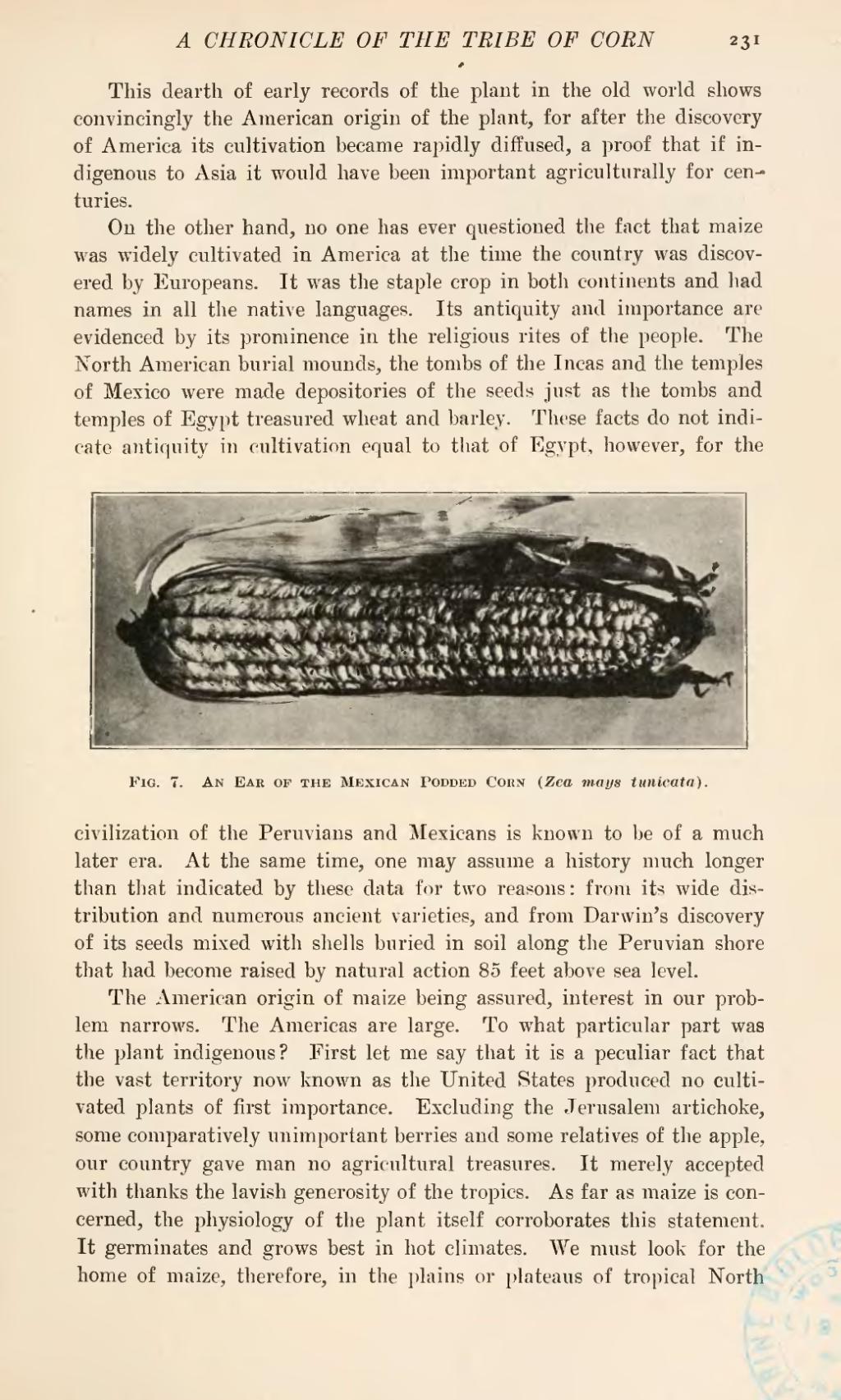This dearth of early records of the plant in the old world shows convincingly the American origin of the plant, for after the discovery of America its cultivation became rapidly diffused, a proof that if indigenous to Asia it would have been important agriculturally for centuries.
On the other hand, no one has ever questioned the fact that maize was widely cultivated in America at the time the country was discovered by Europeans. It was the staple crop in both continents and had names in all the native languages. Its antiquity and importance are evidenced by its prominence in the religious rites of the people. The North American burial mounds, the tombs of the Incas and the temples of Mexico were made depositories of the seeds just as the tombs and temples of Egypt treasured wheat and barley. These facts do not indicate antiquity in cultivation equal to that of Egypt, however, for the
civilization of the Peruvians and Mexicans is known to be of a much later era. At the same time, one may assume a history much longer than that indicated by these data for two reasons: from its wide distribution and numerous ancient varieties, and from Darwin's discovery of its seeds mixed with shells buried in soil along the Peruvian shore that had become raised by natural action 85 feet above sea level.
The American origin of maize being assured, interest in our problem narrows. The Americas are large. To what particular part was the plant indigenous? First let me say that it is a peculiar fact that the vast territory now known as the United States produced no cultivated plants of first importance. Excluding the Jerusalem artichoke, some comparatively unimportant berries and some relatives of the apple, our country gave man no agricultural treasures. It merely accepted with thanks the lavish generosity of the tropics. As far as maize is concerned, the physiology of the plant itself corroborates this statement. It germinates and grows best in hot climates. We must look for the home of maize, therefore, in the plains or plateaus of tropical North

